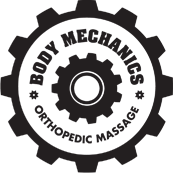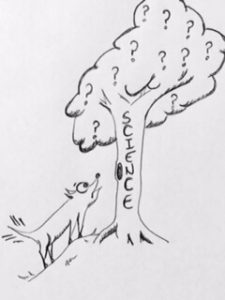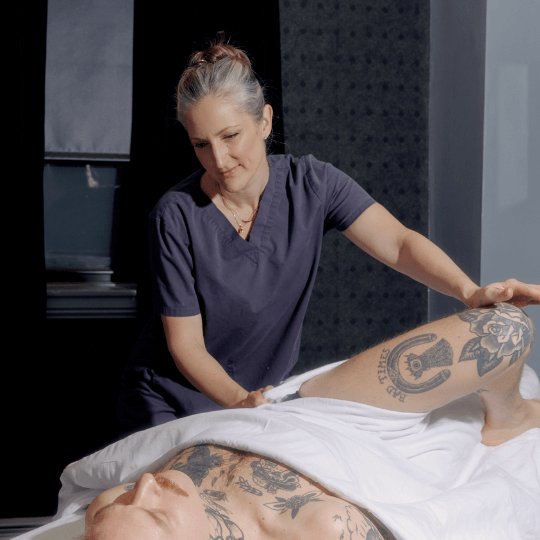Many of us in the massage industry spend a lot of time talking to other therapists about massage therapy. What is holding it back? Is it the non-science based nature that is the issue? Is it the lack of research? Is it the people it attracts? Is it the professionalism? What about the spiritual aspects that some seem to want to connect to?
As most of you know, I am firmly in the science-based camp. My background is pain management with rehabilitative exercise. This is what I was taught in school and I was exposed to nothing else. Prior to my RMT training, I had taken pre-med courses in college, and before that all the AP science classes offered in high school so the Canadian program fit right in with my science-based ideals. It made sense to me.
The US massage industry frustrates me to no-end. I desperately want it to change because, after working in Canada as part of a heath care continuum, I know how good a massage program can be.
I know there are a lot of us pushing for a shift to a science-based program. However, given the condition of the US system and its irregularity, changing to science-based might be asking too much transitionally.
The US massage industry faces a number of problems. With such a large number of workers currently in the industry, the change would surely need to be gradual. One of the things I constantly think about is, with the current requirement of 500-1000 hours and no competency requirement, are we barking up the wrong tree demanding science? Is science even doable? Of course I learned some science in my education, but I didn’t necessarily learn the act of science in massage school. Often times what we receive is the outline of science, the puppetry of science, the mimicry of science…not actual science, even from the best and brightest who teach and share knowledge. I am not saying don’t teach the science aspects, I am saying expecting meta data analysis from someone still trying to figure out where the elbow is, is probably unrealistic. The results may be as poor and dangerous as pseudoscience. Maybe what we should be asking for is naturalism…and leave the science to the experts.
Naturalism is defined as: A philosophical viewpoint according to which everything arises from natural properties and causes, and supernatural or spiritual explanations are excluded or discounted.
Massage therapy lends itself very well to naturalism. At its base even the most complex thing that I have done with a patient through a rehabilitation is simply mimicking how the body would normally behave in a controlled, suggestive state in the hopes that the body realizes it can keep moving and that it does not need whatever protection or feeling it has produced. I try to remind the body of its normal function by setting the stage with relaxing/safe elements, and then lead it through passive, active and resisted activities. And follow up by assigning exercises that will re-enforce that. There are only so many things the body can do. We take the body through these activities in order to start a dialogue. A dialogue with words like – rest, slack, stretch, move, stimulate, sense, resist and strengthen. I try to build windows of time where there is an altered signal or decreased signal, so the body can get back to doing what it loves to do…homeostasis. I monitor all of it through range of motion and pain scales. It is not rocket science;) Of course it can get more complex when you start building in limitations and conditions, but at its base its fairly simple.
Science can be a complicated system of testable questions and answers. There are entire systems in place to understand how to correctly ask the questions, let alone address the answers. Rarely is it simple. It takes years to study, explore and even begin to understand even small parts of it. Naturalism however is beautiful in it’s simplicity. With 500-1000 hours of training and little time to test the application let alone question it, perhaps some of the answers lie there.
Starting with a few simple observations, perhaps we could make a safer, simpler, more ethical massage world. Here are some of the simple statements I keep in mind when practice daily.
- Relaxation has value and potential.
- The body is fine the way it is. Homeostasis works. For the most part the body will correct itself naturally, unless disease is present.
- In the end, all change comes from internal function, not external force *other than trauma
- Setting the stage for rest and digest may help remind the body that things are ok, which may let the person move more or differently, so they can get back to their normal.
- Form is not necessarily representative of function.
What are the statement you practice under? More and more I see statements like “the science of massage”. Yet that statement is pretty misleading, when I think about what I do, as I am not really doing anything. I am simply setting the stage for what the body does for itself…naturally. Absolutely there is room for more advanced practitioners in advanced practice settings, but at the core we need to get comfortable with who we are.
*I want to make a small disclosure here, as to the above statements of rehab. Rehab or rehabilitative exercise falls within the scope of an RMT (Canada). In no way do I advertise the practice of that here in NY, the example is based on my past experiences where it would be very normal for me to work with stroke patients, whiplash patients, etc combining manual therapy, movement and rehab exercise on my own. Your scope will depend on where you practice, and you should follow the local law to that effect.


